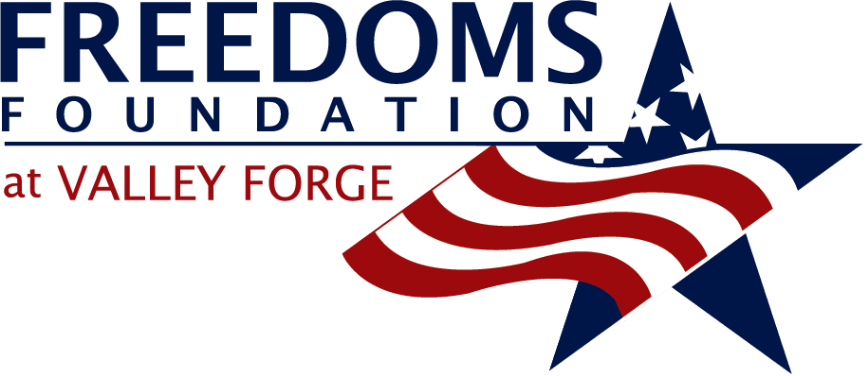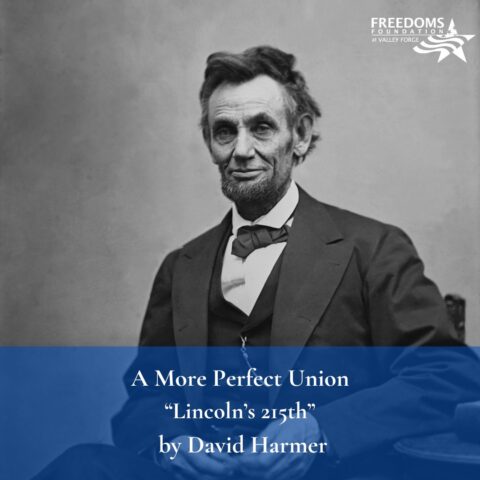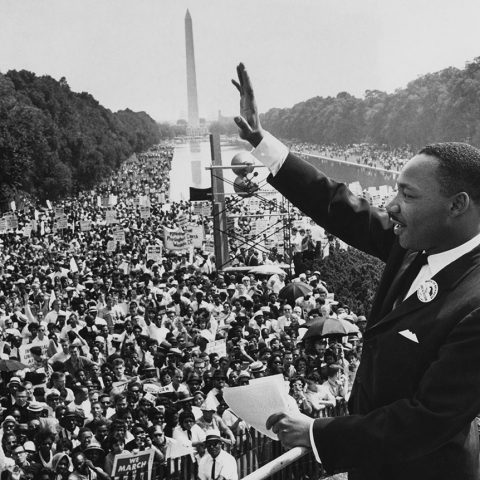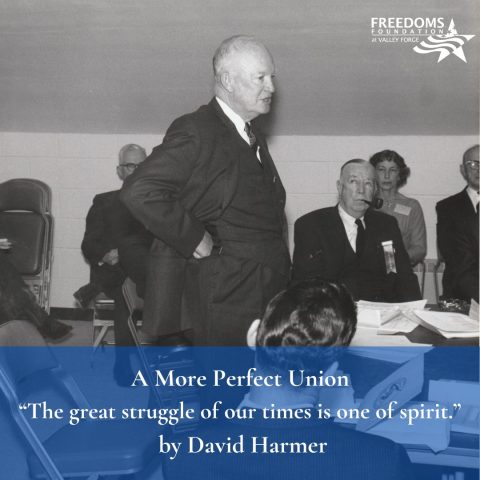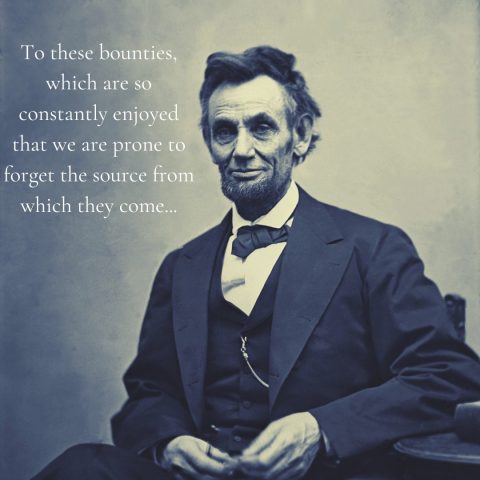The Great Task Remaining Before Us

By David Harmer
On this day in 1863, dedicating the Soldiers’ National Cemetery in Gettysburg, Pennsylvania, President Abraham Lincoln says:
Four score and seven years ago our fathers brought forth on this continent, a new nation, conceived in Liberty, and dedicated to the proposition that all men are created equal.
Now we are engaged in a great civil war, testing whether that nation, or any nation so conceived and so dedicated, can long endure. We are met on a great battle-field of that war. We have come to dedicate a portion of that field, as a final resting place for those who here gave their lives that that nation might live. It is altogether fitting and proper that we should do this.
But, in a larger sense, we can not dedicate — we can not consecrate — we can not hallow — this ground. The brave men, living and dead, who struggled here, have consecrated it, far above our poor power to add or detract. The world will little note, nor long remember what we say here, but it can never forget what they did here. It is for us the living, rather, to be dedicated here to the unfinished work which they who fought here have thus far so nobly advanced. It is rather for us to be here dedicated to the great task remaining before us — that from these honored dead we take increased devotion to that cause for which they gave the last full measure of devotion — that we here highly resolve that these dead shall not have died in vain — that this nation, under God, shall have a new birth of freedom — and that government of the people, by the people, for the people, shall not perish from the earth.
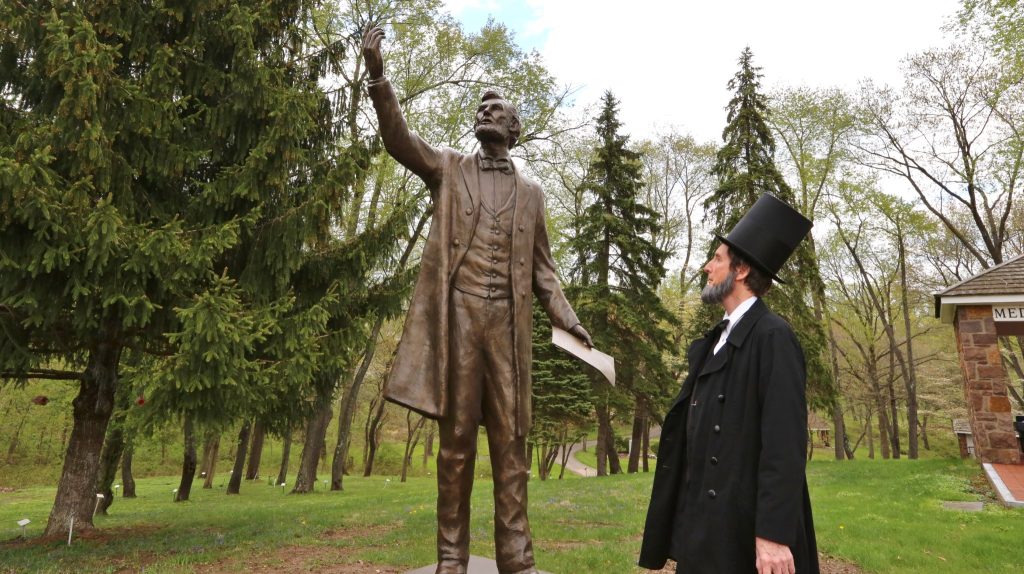
From the site of the bloodiest battle of the bloodiest war in American history, fought only four months before, Lincoln challenges the living—then and now—to increase our devotion to the cause for which the honored dead had demonstrated their devotion. What is that cause?
- Independence? No. In seceding, the Confederate states had declared independence from the national government established by the Constitution. Lincoln is hardly endorsing that. Lincoln echoes the Declaration of Independence, but for purposes more fundamental and universal than its assertion of separation from the mother country.
- Majority rule? No. That’s how Lincoln’s rival Stephen Douglas advocated dealing with slavery: through popular sovereignty, allowing the voters of each territory to determine whether slavery would be allowed there. (The enslaved would not be consulted.) To Lincoln, government of, by, and for the people means something else.
- Union? No. The term doesn’t appear in Lincoln’s remarks. Nor does the concept. There’s an implicit acknowledgement of its opposite, separation, in his reference to the ongoing civil war; but union versus division isn’t what the war is ultimately testing.
The “unfinished work” to which Lincoln refers, “the great task remaining before us,” is to put into practice the proposition to which this nation was and is dedicated: that all men are created equal.
Miraculous though it was, the Constitution had left that work unfinished.
Ambitious though it was, the Emancipation Proclamation had left that work unfinished.
Transformational though they were, even the 13th, 14th, and 15th Amendments left that work unfinished.
Lincoln at Gettysburg calls us to finish that work. To that end, Freedoms Foundation at Valley Forge features the Gettysburg Address both on our campus and in our programs.
Flanking the brick walkway to our Medal of Honor Grove are three matching monuments: one quoting the core of the Declaration, one quoting the preamble to the Constitution, one summarizing the Bill of Rights. Just beyond is a heroic bronze of President Lincoln, one hand beckoning, the other holding his handwritten text of the Gettysburg Address—a reminder of America’s purpose and promise.
Our program faculty features prominent Lincoln historian and author Dr. Allen Guelzo. Formerly of Gettysburg College, now Princeton University, Professor Guelzo comes to Freedoms Foundation each summer to teach unique, exclusive seminars: last year, Abraham Lincoln’s Constitution; this year, the Constitutional Convention and Ratification; next year, Abraham Lincoln and His America.
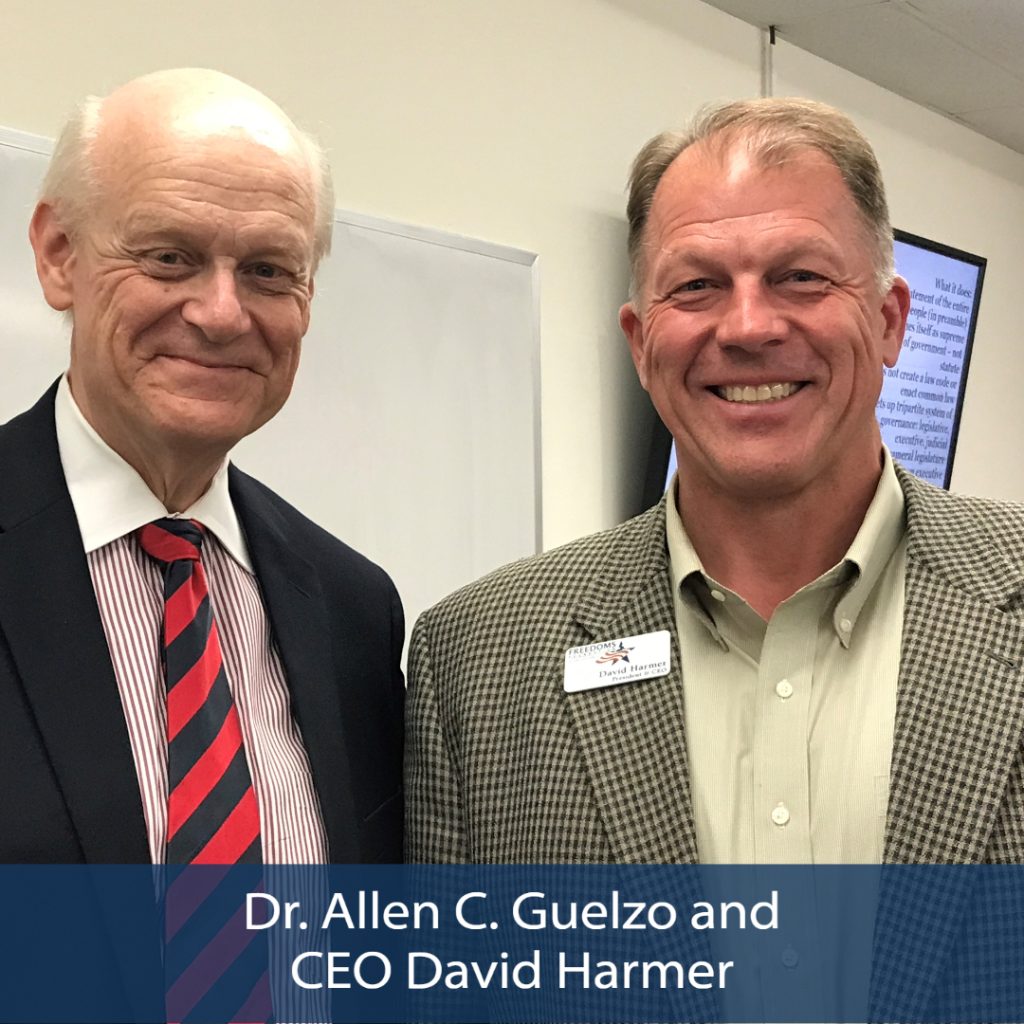
Students and teachers who participate in these programs emerge inspired by America’s founding ideals, motivated to shoulder the responsibilities of citizenship, and equipped to transcend the partisanship and polarization now poisoning public discourse and paralyzing public policy. We think President Lincoln would be pleased.
If you concur, will you support our work? As Thanksgiving approaches, that would be an especially meaningful way to demonstrate gratitude for the blessings of freedom. Your gift will help the rising generation understand and appreciate the freedoms bequeathed to them—a fitting way to commemorate this, the 159th anniversary of the Gettysburg Address.
Thank you for your consideration.
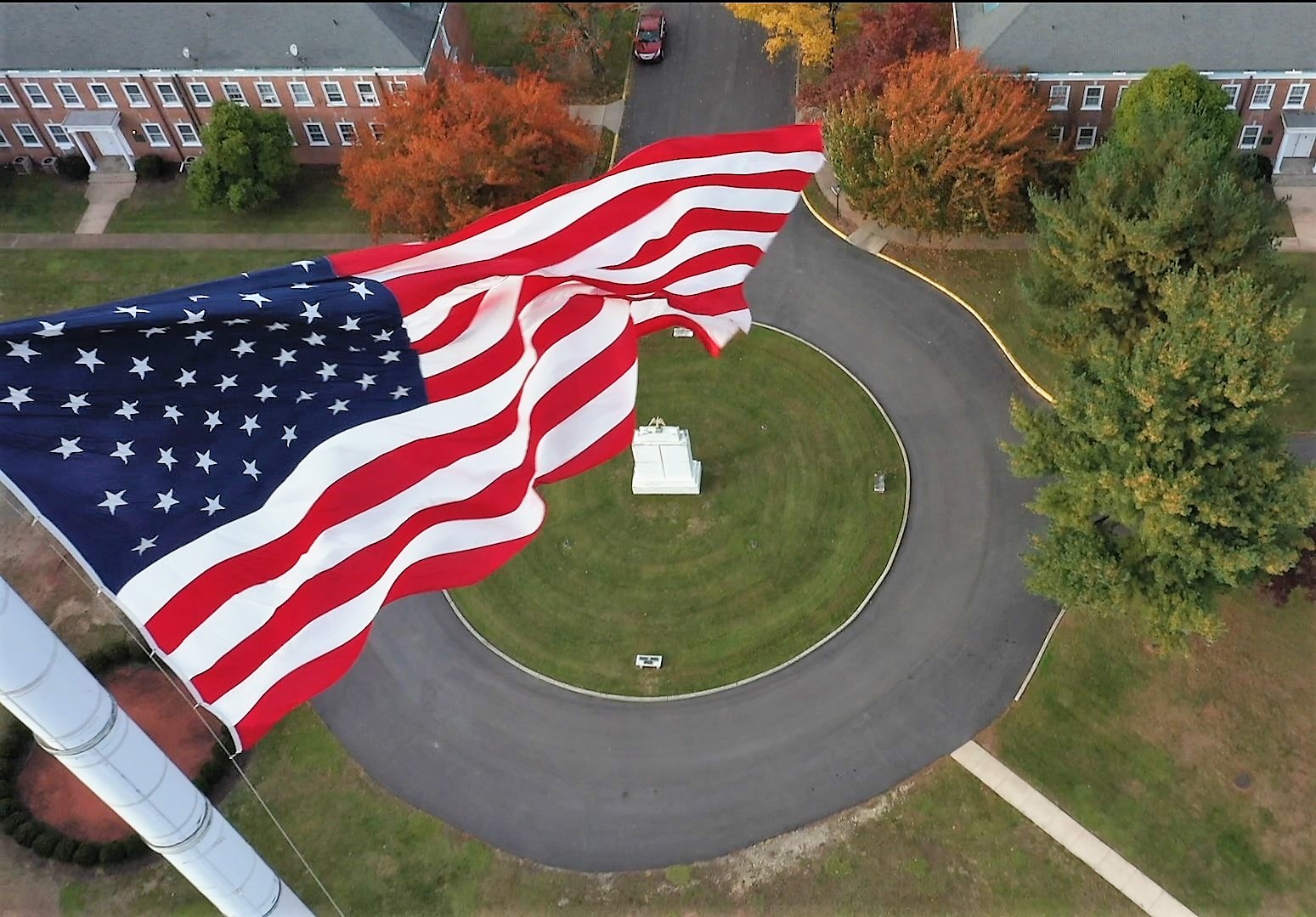
Donate Today
Supporting America’s first principles of freedom is essential to ensure future generations understand and cherish the blessings of liberty. With your donation, we will reach even more young people with the truth of America’s unique past, its promising future, and the liberty for which it stands. Help us prepare the next generation of leaders.
